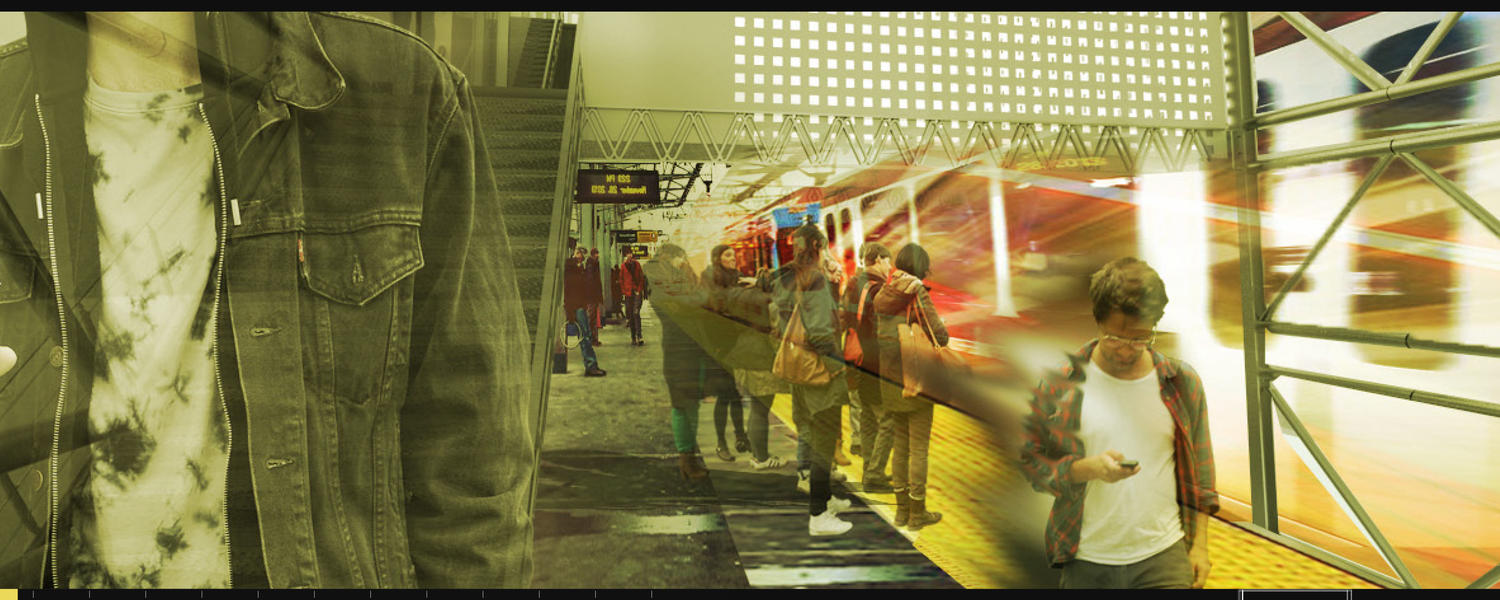The MArch program was established at the university over 40 years ago. As a response to changing social, professional and institutional transitions, the program has evolved to develop a distinctive approach to architectural education, research and practice. More recently we have repositioned ourselves to address the contemporary challenges facing the discipline of architecture. This has involved a renewed commitment to critical practice through the lenses of digital design, sustainable systems, and urban ecologies. The program, intended for those wishing to pursue a career in architecture, offers an integrated foundation curriculum for students to develop skills and knowledge in design, communication, technology, history, and theory.
Textura, installation led by Laboratory of Integrative Design for the Edmonton Zoo's Festival of Light.
Laboratory of Integrative Design
STATEMENT OF PHILOSOPHY
There is a pressing need for built environments to be comprehensively designed and integrated across scales, fostering better social relations and reducing environmental impacts. Our approach to architecture seeks an ecological response to the forces that factor into the design, construction, and inhabitation of buildings and related environments. Ecology refers to the relationships between organisms and environments, in the case of architecture this includes the many social, technical, political, spatial, and cultural factors that effect these relationships. By engaging contemporary problems through studio, technical, and theory courses, our students come to understand the implications of creating architecture and other environments in the 21st century.
SYNTHESIS THROUGH DESIGN
Architecture is a synthetic profession. Architects engage the complexity of environmental, economic, cultural and physical site conditions through the use of disciplinary tools and tactics. They guide a process to bring together stakeholders and experts from a wide array of fields towards the production of the built environment. Architects design environments and objects at many scales, and are uniquely qualified to engage the problems and opportunities presented by a quickly changing world. We train architects who will positively influence the future of the built and natural environment.
TOOLS FOR INNOVATION
As part of your training in the undergraduate and/or Masters of Architecture program, you will have access to cutting-edge technology and the expertise to deploy that technology towards innovative and speculative design projects. Research labs in integrative design, energy and structural performance, and sustainable building practices support an experience that trains students to be active participants in the future.
FACULTY COMMITTED TO EXCELLENCE
Students are supported by world-class faculty from around the world with diverse interests and international reputations. They lead award-winning architectural firms, undertake industry and government funded research and publish books. Whether it’s research on building performance, architectural theory, or project-based design — we have you covered. Our small course sizes, studio-based curriculum and opportunities for project-based learning help students truly connect with their instructors as mentors.
CITIZENS OF THE WORLD
Each year, a group of students from the program undertake international learning experiences through studios in Tokyo and Barcelona. Students have visited and worked on projects in Mexico and the United States as well as numerous exchanges with partner institutions around Europe. We have welcomed students from around the world into the program, and create space for the exchange of ideas on a global scale.

